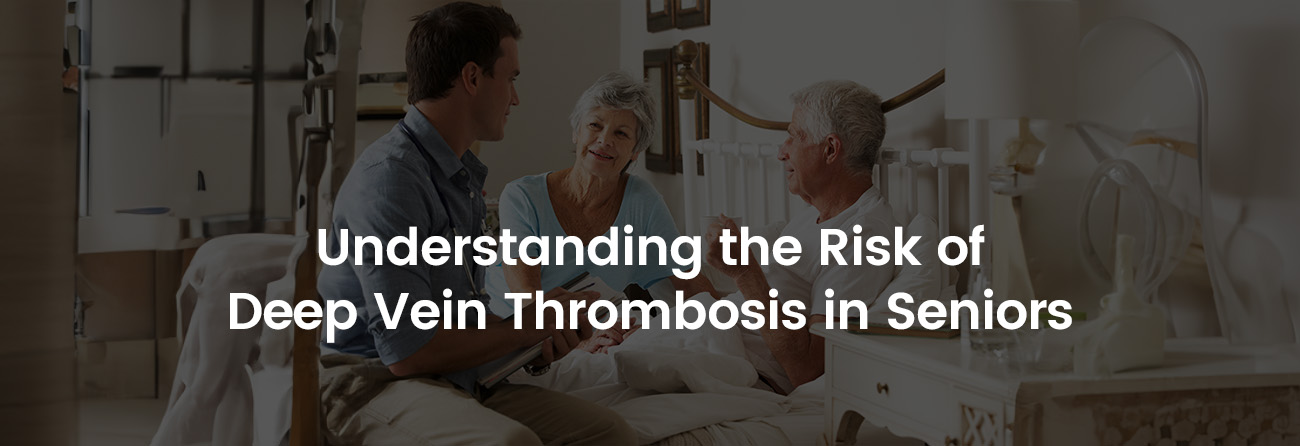
With age, our healthcare requirements tend to become more complex, making it crucial to have a primary care physician who specializes in senior care. Primary care physicians play a vital role in our senior years, serving as the first point of contact for any medical concerns.
However, there are different types of primary care physicians available in the medical clinics, which makes it even more challenging to determine which one is right for seniors. In this blog post, we will share detailed insights into the types of primary care physicians for seniors and the importance of finding the right one for optimal health and well-being. Read on to learn more.
Who is a Primary Care Physician?
A primary care doctor is a medical professional who provides primary healthcare services to patients. They are physicians who look after the ongoing management of a patient’s health and coordinate care with specialists as required.
There are a variety of services that primary care physicians provide, including routine check-ups, vaccinations, physical exams, health screenings, and treatment for chronic conditions such as high blood pressure, diabetes, and asthma. Primary care physicians often develop long-term relationships with their patients, have detailed information about their medical history and personal preference, and help them make informed decisions about their health.
Read More: Foods That Help Lower Blood Pressure
Types of Primary Care Physicians for Seniors

1. General Practitioners
Also known as a GP, a general practitioner is a medical doctor who provides primary care health services to patients of all ages and genders. GPs must complete a medical degree and a three-year residency program in family medicine or internal medicine.
A general practitioner is trained to diagnose and treat a wide range of health issues- from acute illnesses to chronic conditions. In addition, GPs also provide preventive care services and take a holistic approach to healthcare, which means they consider all aspects of a patient’s health and well-being. This holistic approach that GPs provide is especially crucial for seniors who may have complex health needs that require a holistic approach.
2. Geriatricians
They are medical doctors who specialize in the care of older adults & address the unique needs and concerns of seniors. Geriatricians must complete a medical degree, a three-year residency program in internal or family medicine, and a two-year fellowship in geriatric medicine.
Geriatricians take a multidisciplinary approach to providing comprehensive senior care services. The benefits of having a geriatrician as a primary care doctor for seniors include specialized senior care services for age-related conditions, such as cognitive impairment, falls, and frailty. Besides, they are trained to manage the use of multiple medications in older adults, which can help prevent medication errors and adverse drug reactions.
3. Family Practitioners
They are physicians who provide primary care services to patients of all ages and genders. Family practitioners must complete a medical degree and a three-year residency program in family medicine.
They majorly focus on preventive methods and family-centered approaches to provide comprehensive care for a wide range of health issues.
4. Internists
Also known as internal medicine physicians, internists are medical doctors available in healthcare clinics, specializing in the care of adults. They must complete a medical degree and a three-year residency program in internal medicine.
Internists are trained to diagnose and treat a wide range of medical conditions, including chronic diseases such as diabetes, autoimmune disorders, etc. They also provide preventative care services such as health screenings, vaccinations, and counseling on lifestyle modifications. Internists often serve as primary care physicians for adults with complex medical conditions that require continuous, long-term health management.
5. OB-GYNs
Obstetrician-gynecologists or OB-GYNs are medical doctors specializing in women’s reproductive health. OB-GYNs must complete a medical degree, a four-year residency program in obstetrics and gynecology, and be board certified in obstetrics and gynecology. They are required for women reproductive health throughout their lives, from adolescence through menopause and beyond.
OB-GYNs provide routine gynecologic care, including Pap smears and breast exams, and manage conditions such as menstrual disorders and menopausal symptoms. Besides, OB-GYNs can help coordinate care with other specialists as needed, such as endocrinologists for hormone imbalances or urologists for urinary issues.
Choosing the Right Primary Care Doctor for Seniors
In order to maintain good health, seniors need to find a primary care physician they can trust and feel comfortable with. The following are a few things caregivers should consider while choosing a primary care physician for seniors:
- Check whether the doctor’s expenses are covered under the health insurance plans of seniors. If the plan requires an in-network doctor, begin by looking at the list of participating doctors.
- Choose a doctor whose medical clinic is close to the seniors’ or their caregivers’ home or office.
- Consider a doctor whose office hours are compatible with the seniors’ daily routine or work hours. Check whether the office has weekend, evening, or on-call services in case of emergency.
- Make sure that the doctor or members of his staff communicate well in a language that seniors prefer using. It will ensure easy and effective communication, which is essential to understand the doctor’s recommendations.
- Confirm whether the doctor is board certified. Caregivers can use the Certification Matters tool offered by the American Board of Medical Specialties to verify the certification.
- Try to choose a doctor who also offers online doctor consultation, telemedicine options and has an online portal where seniors or their caregivers can ask questions, schedule appointments, see test results, and access health history.
- Lastly, it is crucial to check the policies of the doctor’s office, such as cancellation and rescheduling policies. Also, check whether they offer payment plans in case seniors need an expensive procedure that is not covered by insurance.
How Often Do Seniors Need to See Their Primary Care Physician
The frequency of visits to a primary care doctor for seniors may vary depending on their individual health needs and medical history. However, according to the AARP, seniors should see their primary care doctor at least once a year for a routine physical exam. This annual physical exam can help identify any potential health issues, update medications, and discuss any changes in health or lifestyle.
For seniors suffering from chronic conditions such as diabetes, heart disease, or COPD, routine visits may need to be more frequent. It is crucial to consult this with their doctor and follow their instructions carefully.
For any queries or concerns about seniors’ health, contact EliteCare Health Centers, one of the best medical clinics in Florida that offers senior care services.






